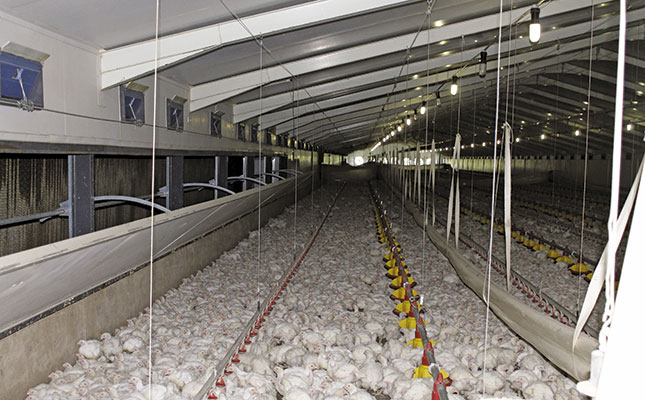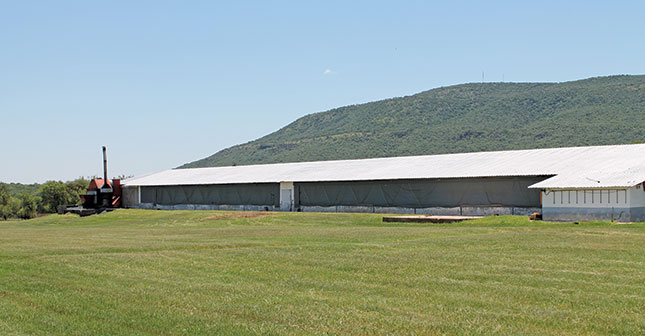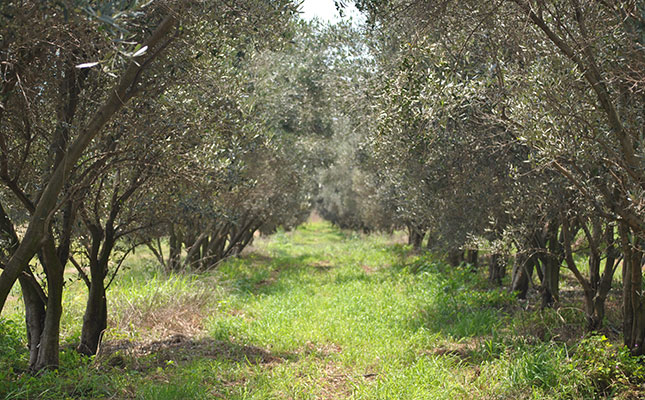
Photo: Peter Mashala
According to Gilbert Phalafala, farming, including the running of a top broiler business, is all about careful management.
“You have to think on your feet and constantly make sure all aspects of your business are running smoothly. And never take anything – or anyone – for granted.”
In a few words, Gilbert Phalafala has summed up his approach to business – an approach that saw him receive the 2012 Agri SA/Toyota New Harvest Farmer of the Year award. Yet Gilbert’s background is not in farming, but in accounting and business.
READ: Profit from better broiler production
Background
A one-time accountant for SA Breweries, he became an entrepreneur and started a transport company. In 2007, concerned that business was not as brisk as it could be, he made the decision to diversify into farming.
“The question was: what type of farming? I wanted to have a fast turnaround and generate good profits,” he recalls. “After some research, I settled on starting a broiler business. Their production cycle is much shorter than that of cattle, sheep or goats, which means quicker income generation.”

In the same year, he bought a 230ha poultry farm near Zeerust, renaming it Essaurinca after his home village in Limpopo.
The farm was purchased as a going concern, with eight chicken houses and a contract with a major chicken company already in place. So Gilbert hit the ground running.
Despite knowing little about farming, he understood the essentials of running a business, and applied these principles immediately. Above all, he focused on disciplined management and building up an efficient team.
It didn’t take long for his hard work to pay off, and after only two years, Gilbert and his staff had transformed Essaurinca into one of the best-performing farms in the area. This naturally attracted attention – and resulted in another large contract practically falling into his lap.
New contract
Gilbert’s neighbour, also a poultry farmer, was a Rainbow Chicken contract grower. With their vehicles constantly driving past, it was inevitable that the company noticed Essaurinca. Before long, Rainbow contacted Gilbert and invited him to become a contract grower too.
“An important factor in its decision was biosecurity, and we were already complying with the standard,“ recalls Gilbert.
Switching to Rainbow Chicken opened opportunities for Gilbert to increase his turnover. He increased his production cycles from six-and-a-half to eight a year, keeping the same cycle duration of 35 days. He also added three more houses, upping his total output to more than 300 000 birds per cycle.
The right people
As mentioned, a key aspect of Gilbert’s success has been to establish a strong team. After dismissing four managers who were not performing to his satisfaction, he appointed his current manager, Simon Morukhu, whom he had met through a mutual friend. Simon had worked for a large chicken company for over 26 years, starting as a general worker and ending up as manager of one of the company’s farms.
READ: How to start your own poultry business
According to Gilbert, Simon is the “engine” on the farm.
“Of course we have our ups and downs,” he says. “But we respect each other. I let him tell me when I’m wrong, and I apologise. And we keep any disagreements to ourselves.”
Gilbert adds that his relationship with the rest of his team is also crucial to the farm’s success. He holds regular meetings with his staff to keep communication open and ensure a smooth operation.
Simon agrees that their progress has been largely due to hard team work and mutual respect, adding that the 26 staff members are highly capable.
“They make sure this farm runs like a well-oiled machine,” he says proudly. The team, including maintenance and security personnel, is divided into day and night shifts.
High standards, maximum profits
Essaurinca’s chickens that are supplied to Rainbow are destined for KFC. This is good news for Gilbert and his team as the fast food franchisor is prepared to pay a premium for top quality birds.
“We make a higher profit than in the retail market,” says Simon. “But we have to maintain a high standard. If our quality drops, the chickens will have to be channelled to the supermarkets, which means lower profits.
“KFC requires birds of between 1,65kg and 1,8kg, and the flesh can’t have any bruises.”

After a batch has been marketed, a week is set aside to prepare the house for the next batch.
“We start by removing everything inside,” explains Simon. “The house is washed and disinfected, and then we put down the bedding. Although we sometimes use wood shavings, we prefer sunflower husks. They’re cheaper, and readily available from NWK in Lichtenburg.”
Once the bedding is laid, the houses are treated with formalin and, a day later, pre-heated for three days to 34°C in winter and 32°C in summer before the new batch arrives. The houses are fitted with coal-fired heaters.
“Maintaining the correct temperature is essential,” stresses Simon. “In winter, we gradually decrease the temperature from 34°c on the day the chicks arrive to 22°C on the last day. In summer, we drop it from 32°C to 20°C.
He points out that the chickens’ behaviour soon shows if the temperature is not ideal. When the birds feel uncomfortably hot, they tend to move away from the feeders and cluster against the walls. As a result, they do not eat enough. Conversely, when they are too cold, they huddle in groups to warm themselves with their body heat. Again, they do not eat enough and sometimes get stressed and peck at one another.
READ: Keeping your broilers cool
Simon prefers keeping the houses closed at all times and using artificial ventilation, cooling and heating.
“It sometimes gets very hot in our area and opening the curtains doesn’t lower the temperature enough. Artificial systems allow us to keep better control,” he explains.
Optimal feeding regime
Equally important is a carefully managed feeding pattern.
“If the birds eat too much, mortality could increase,” Simon explains. “It should not be higher than 4%. If they over-eat, their bodies grow more quickly than their organs, and they could suffer heart failure.”
The chicks are fed according to a strict routine:
– Day 1 to day 12: starter mash.
– Day 13 to day 16: grower 1 pellets.
– Day 17 to day 21: grower 2 pellets.
– From day 23: finisher feed.
Simon vaccinates for common diseases such as gumboro and Newcastle, according to a programme set out by Rainbow’s veterinarians.
“The vaccines are put in the chicks’ drinking water,” he explains. “To make sure they drink, we turn off the water. We turn it on again an hour later and by then they’re thirsty.” Rest, too, is important. To ensure that the chickens get enough, the lights are switched off for at least eight hours a day.
Overcoming challenges to become a top broiler business
According to Gilbert, high electricity costs dominate the agendas of the district meetings held by growers.
“Two years ago, my monthly Eskom bill was just above R20 000. Now it’s R37 000,” he says.
To maintain product quality, Gilbert has been forced to find ways around this problem. One solution has been to increase the number of houses from eight to 11. This has ensured better economy of scale.
“We’ve also continued to invest in our employees,” he adds. “Having an efficient, well-motivated team helps save money and maximise profit. With low absenteeism and every individual doing his or her job, things tend to run smoothly overall.
“To achieve this, we treat people with respect, pay above the minimum wage, ensure pleasant working conditions and provide good housing. We also organise training for the workers to improve their skills.”
Phone Gilbert Phalafala on 082 900 7454 or Simon Murukhu on 083 640 0540.
This article was originally published in the 15 February 2013 issue of Farmer’s weekly.













